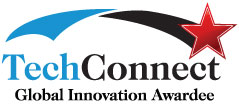TECHNOLOGY SUMMARY
To compete with the re-fuelling times of gas-powered vehicles and promote mass adoption of electric vehicles, a maximum of15-minute charging time for Li-ion batteries is necessary as per the DOE. Waterloo researchers have developed a replacement architecture that utilizes covalent bonding to form a network of bound active particles.
AREA/MATURITY/AWARDS
Primary Application Area: Energy, Efficiency, Environmental
Technology Development Status: Prototype
Technology Readiness Level: TRL 5
Vetted Programs/Awards: 1) Recipient of Natural Sciences and Engineering Research Council of Canada Lab to Market grant (NSERC L2M)
2) Recipient of Natural Sciences and Engineering Research Council of Canada Idea to Innovation grant (NSERC I2I)
MARKET KEYWORDS
Market Keywords: Electric Vehicles, Hybrid Vehicle, Auxiliary Batteries
